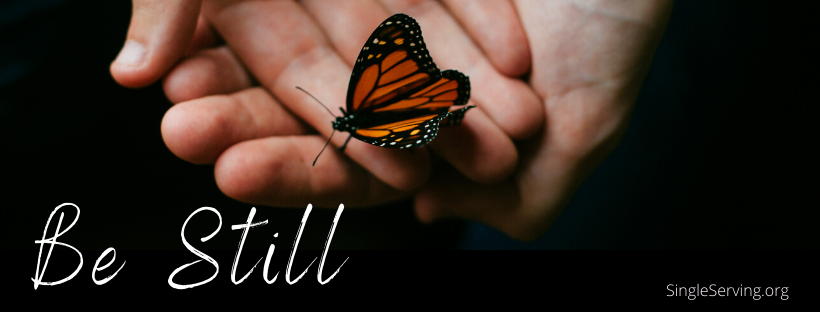
This is our butterfly effect moment. Here’s what I mean by that.
I was an imaginative child, always singing into a hairbrush, acting out a scene in a mirror or frolicking about like a princess fairy. But when my playtime theatrics became too raucous, my great grandmother’s stern warning was like a sharp tack piercing a balloon.
“Get somewhere and sit down!”
Her words were clear, incisive, and matter of fact.
That simple command meant I was to quiet myself— immediately. Find myself a comfortable seat and be still. Anyone who was raised under old school parenting knows exactly what I mean. There was no negotiating. It wasn’t an option. She meant what she said and said what she meant. She was consistent, never wavering from what she felt was best. So I obeyed her instruction. This commanding matriarch was as much a teacher as she was a disciplinarian. Lovingly, she would serve me home-cooked meals or embrace me warmly in a hug and all the while she was teaching me what it meant to respect authority: to trust that she knew best.
As we face a global health crisis, those who know best have in essence asked us to be still. And yet, like an undisciplined, rebellious child, some of us continue to resist protective guidance. I can’t help but wonder if our current circumstance is forcing us all to reckon with the seeds of discord that have been planted in a polarized nation that’s been struggling with its identity. We don’t trust journalists. We don’t trust the government. We don’t trust corporations. We don’t trust the person who voted for the other side. Some of us don’t even trust our neighbors.
Coupled with this distrust is what it means to be American. Inherent in our citizenship is a brazen belief in unconditional freedom— the right to go, see, feel and say whatever, whenever and however we want— without consequence. But individualism in a pandemic comes at a price. Right now, a lack of regard for others isn’t just a harmless tweet; it’s a hefty expense that someone else will pay.
The word ‘selfish’ has been tossed around on social media in visceral responses to every selfie or comment of flagrant disobedience to the protective guidance of global health experts. It makes me wonder what’s the cure for all this bickering when we’ve got bigger problems?
The answer is: gratitude. The other is: action.
Gratitude in Action
Gratitude is one of those virtues that’s either taught or caught. Either the adults in your life taught you the value of the food on the table, the clothes on your back, the shoes on your feet, and home where you were protected or sadly, blistering adversity was your teacher.
Be grateful there’s breath in your body.
If possible, stay home because someone out there is breathing their last breath.
Be grateful you can work from home.
Tip generously for every food delivery because someone has to continue working so that grocery shelves are stocked and packages get delivered.
Be grateful you aren’t infected.
Eat healthy, exercise, boost your immune system because someone in your circle may be infected and not even know it.
Be grateful you have resources to weather the storm.
Be supportive, help others when and where you can because some families are out there searching for last-minute childcare so they can work to pay the bills.
If you’re healthy, offer to help your neighbors who are elderly or have compromised immune systems.
This is our butterfly effect moment. Everything we do today will matter tomorrow. So in the wise words of my great grandmother, “It’s time to get somewhere and sit down.”
And if those words don’t register, perhaps The Word will:
“Be still and know…” (Psalm 46:10)